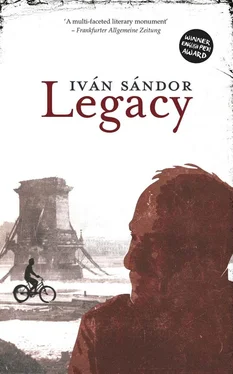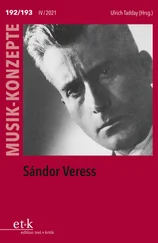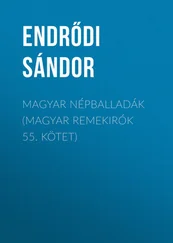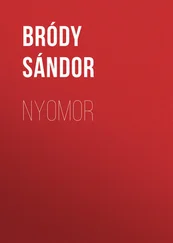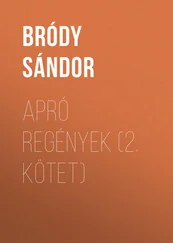On the gateway to number 5/a Tátra Street, the next street leading off the Outer Circle, a Swiss letter of protection is framed next to a yellow star. A policeman is standing in front of the house. Gizi shows him her identification; the policeman salutes and calls for the warden of the house. He says he is not permitted to let anyone in. There is no more room and yesterday ten rooms had to be vacated because, in line with an agreement between legations, they were supposed to admit people under Swedish protection. Father shows him the family’s letter. The warden spreads his arms and says there isn’t room to fit anyone else in, even in the corridors. New people have been coming for hours; it’s not just us he has had to refuse.
Vera says I should ask Mother if she has anything to eat. The warden closes the gate. Vera does not repeat that she is hungry but asks whether we have got to Buda. That would have to mean we crossed the Danube, I say. On those planks again?
The physicist says something to Gizi. We turn back for Pannónia Street. A German tank again approaches, probably the same one we met earlier, the soldiers behind it likewise holding their MP40 submachine guns ready to shoot.
Father reckons the physicist told Gizi that his cousin lives at number 36 Pannónia Street, and as far as he knows he is the warden there. Number 36 Pannónia Street also figured on Gizi’s list, but according to the Swiss Legation we should only try there as a last resort, she says, as there were so many already there.
The physicist goes ahead and rings at the gate. On the pavement over on the far side of the road two Arrow Crossers are racing after the German tank. A tall woman comes out and embraces the physicist. They enter into a conversation with Gizi. The woman raises her hands in a declining gesture. The physicist unwinds the strip of sacking from round his head. The woman tells him, Laci, you would be best advised to go elsewhere because you’ll be taken for a Jew, and you’ll be taken away any time they line the people here up.
The physicist asks his cousin why they had stayed in the house if the situation was that risky. Gizi later recounted, says Mother, that the woman simply said that this was where they had lived for thirty years, and Berci had not wanted to move. He had become the warden, he had army contacts, you know, he was a sergeant in the Great War, at which the physicist said that he had wanted to be admitted to his university department, but it seems that had been impossible. There was just one bed for him, the woman responded loudly. One place can be found, Laci, but only one. This is a whole family here, good friends of mine, with two children, says the physicist. Gizi holds her papers under the woman’s nose. They have a Swiss safe-conduct letter that’s valid for all four of them, she says. Carl Lutz, the chargé d’affaires at the legation, referred them to this house.
The woman goes inside and comes back a little later. Gizi beckons. Father takes me by the hand; Mother takes Vera. Three soldiers are approaching from the corner, one of them an officer. They come to a halt in front of the gate. The woman pulls back into the stair well while Gizi speaks with the officer. The soldiers hurry away. The stairwell is dark; the blue-painted electric bulb is providing light on the third or fourth floors. The entrance is spacious, with marble inside and wrought-iron banisters on the steps. The steps wind to the right in a semicircle to the first floor. We step over those sitting on the landings; children are asleep on mattresses. Father introduces himself to the warden, who is a tall man wearing a leather coat and an old-fashioned officer’s cap. He looks at the fancy braiding on my coat and checks the paperwork. I’ve got two days of rations for 234 people, he tells Gizi. We’ve acquired two field kitchens and set them up in the yard. The womenfolk have to work around those. The menfolk have to chop wood, and every day a group of four goes out to fetch bread during the hours outside the curfew that are permitted for those wearing yellow stars. That’s risky as they might get picked up by an Arrow Cross patrol looking to take people off to the bank of the Danube, as they so charmingly put it.
His wife is standing beside him. She is as tall as him with the same ashen features, her wrinkles just as deep.
You can count on us, Father declares. My wife cooks, my son will lend a hand with the wood chopping, and I’ll go for bread when it’s my turn.
Gizi says to Vera, And you’ll do your bit to help as well, won’t you, with washing the dishes and cleaning? Terrified, Vera nods.
I can’t guarantee a bed, says the woman. Even the cellar is overcrowded. You can take your pick. Either you can go downstairs into the cellar corridor, where you can sit on a haversack or else you go up to the fourth floor where one of the apartments has been cleared out, but it’s as cold as out on the street.
Father and Mother consult. I just hope they won’t opt for the cellar corridor because Vera is afraid of the dark.
Gizi takes leave; we have no idea where she is going. She says something to the warden, and he raises a hand to his officer’s cap in salute. I haven’t seen the physicist since we entered the house. Gizi gives all four of us a kiss. Mother is crying, but why now of all times?
A four-room apartment on the fourth floor. The bathroom alone, tiled all the way up to the ceiling, is as big as one of the smaller rooms. All the windowpanes have been shattered by the bomb blasts. Father and Mother spend the night in easy chairs in the dining-room, Vera on a settee in the middle room, while I sleep in a corner room on a divan. Father rustles up two blankets and spreads one over Vera, the second over me.
The carpets must have been carried away; the cupboards are wide-open, the shelves are empty, clothes hangers are scattered all around. A bomb has torn a hole in the ceiling of the fourth room. The next morning Mother finds a crust of dry bread, which she shares out, and opens one of our last remaining tins of liver pâté. Father goes downstairs, although I don’t know where. He comes back then goes off to queue for drinking water. The duffel coat is wrapped round Vera’s shoulders with the collar pulled up as well, so only her forehead and eyes can be seen. Father looks for the warden then comes back. He says he is going downstairs to chop firewood, so I go, too.
The yard is huge expanse of concrete — it must be about ten by fifteen metres in size. The inner balconies of the house next door can be seen from it. The two of us chop the wood, and two other men carry it away. The warden says that retreating soldiers had left their cauldrons in the street, and it was from there they had been brought in. The wood is green and only catches light with difficulty. Some women bring out cooking pots. At noon we stand in line for a helping of beans. There is a shortage of mess tins and mugs into which to serve it. Anyone who has eaten their ration wipes out the vessel with a sheet of newspaper before handing it on. Mother goes up to the fourth floor to wash plates and spoons in the bathroom, having been warned that even if the water is running it is not drinkable. Vera ate the beans now, whereas she left half of what was dished out to her by the Linnerts on Amerikai Road.
I rearrange the things in my haversack. My hand comes across the shell, but I don’t pull it out, not wishing Father or Mother to spot it, as they would know it belongs to Uncle Róbert.
Despite that they do see it. Mother tells me to take care of it. Aunt Bőzsi was very fond of it and will be delighted that I have held on to it.
I have not seen the physicist since we arrived. I visit a few of the apartments. I recognize nobody and do not ask around. There are six to eight people in each room, with places for bedding down even in the kitchens and bath tubs. We prepare methodically for the second night. Mother and Father decide that they will lie on the settee where Vera slept and will take the blanket she had. Vera comes to lie next to me, and we spread my duffel coat and Vera’s winter coat over the blanket for both of us.
Читать дальше
